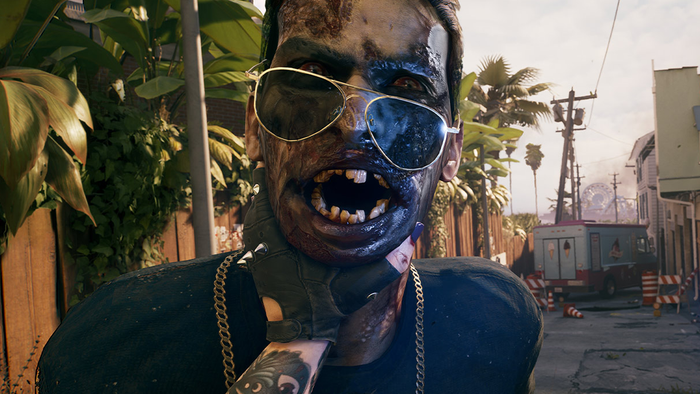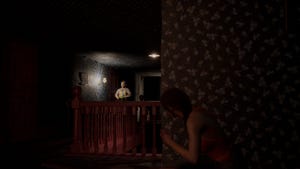Opinion: Growing Up With Pokemon
In this Gamasutra opinion piece, James Bishop champions Pokémon as the "ultimate coming-of-age story" in gaming, and examines the multi-million selling Nintendo title's resonant messaging for players.

[In this Gamasutra opinion piece, James Bishop champions Pokemon as the ultimate coming-of-age story in gaming, showing why the multi-million selling Nintendo title actually has surprisingly resonant messaging for players.] In any coming-of-age novel, or bildungsroman, the story often begins with the hero or protagonist as a child. If not as a child, then it begins on the cusp of adulthood--a young adult transitioning from childhood and encountering all of the problems therein. They set out just after their metaphorical transformation in order to prove themselves and, in a sense, show that they are worthy of inheriting the world before them. They embark on a journey. Over the course of their journey or quest, they will face many obstacles, overcome them and win the day. Be it slaying a dragon, defeating the evil wizard or overthrowing the corrupt monarchy that has cast shadows over the land for so long, the hero eventually reaches the pinnacle of their abilities and showcases them for all to see. Often, this is done by achieving some kind of personal growth while also performing a previously unreachable feat. Becoming the Pokemon master fits this mold nicely. It is, perhaps, the ultimate bildungsroman of gaming. Bildungsroman And Campbell's Monomyth Bildungsroman, as mentioned above, is really just a fancy way of classifying a particular piece of work as about the personal growth and development of a protagonist. In the past, this has been applied in order to define the genre of novels and films so it seems apt to use the same vernacular with other mediums, like video games. As a couple of examples, novels like The Lord of the Rings and The Catcher in the Rye have been associated with the genre in the past. Joseph Campbell’s monomyth is another useful tool to have in any critical analysis of gaming. It’s not the focus here, though, but deserves mention as the bildungsroman, as a genre, and monomyth, as a method of analysis, share a number of characteristics. It can be easy to conflate the two if not careful. Consider this presentation of it as an acknowledgment—a tip of the hat—and only that in order to keep them distinct from each other. With the definition of bildungsroman glossed over and a bit about monomyth filed away, it’s time for specifics as to how Pokemon even counts as a member of the genre.  Pokemon As Bildungsroman In every wayward hero’s quest for glory, there is almost always that moment where the journey gets the better of them. They falter, fail and have to try again. For those who play through Pokemon HeartGold or Pokemon SoulSilver or the original games they are based on, that stumbling point often seems to be the Goldenrod Gym leader: Whitney. At least it was for me. The moment her Miltank exploded onto the scene and started its dastardly and seemingly unending string of Rollouts, I knew my time in the gym would be short. Even in a game that I had sunk a countless number of hours into over the years, it was still surprisingly easy to find myself schooled and tossed out of the gym, in what I imagine to be a most undignified way, in order to scramble to the nearest Pokemon Center. Each and every gym battle is another bump in the road that must be overcome in order to achieve that ultimate glorious victory: becoming the Pokemon master. Team Rocket, or whatever iteration, must be defeated. At some point, the Elite Four has to go down. While it might seem like all of this growth and change is based entirely on leveling critters that are kept in round containers, the grand irony is that there is actually a stark moral background just out of focus throughout the entire game.
Pokemon As Bildungsroman In every wayward hero’s quest for glory, there is almost always that moment where the journey gets the better of them. They falter, fail and have to try again. For those who play through Pokemon HeartGold or Pokemon SoulSilver or the original games they are based on, that stumbling point often seems to be the Goldenrod Gym leader: Whitney. At least it was for me. The moment her Miltank exploded onto the scene and started its dastardly and seemingly unending string of Rollouts, I knew my time in the gym would be short. Even in a game that I had sunk a countless number of hours into over the years, it was still surprisingly easy to find myself schooled and tossed out of the gym, in what I imagine to be a most undignified way, in order to scramble to the nearest Pokemon Center. Each and every gym battle is another bump in the road that must be overcome in order to achieve that ultimate glorious victory: becoming the Pokemon master. Team Rocket, or whatever iteration, must be defeated. At some point, the Elite Four has to go down. While it might seem like all of this growth and change is based entirely on leveling critters that are kept in round containers, the grand irony is that there is actually a stark moral background just out of focus throughout the entire game.  The Rival's Morality In some ways the true coming-of-age story, is that of the player’s rival. The rival takes a decidedly different moral stance on Pokemon as opposed to the player; they are tools to be used and nothing more. It’s assumed that the player has taken the more virtuous stance that Pokemon have feelings, lives of their own and, in general, aren’t merely property. The rival, who steals his first Pokemon and races to become the Pokemon master in the latest generation of games, is quite like the hare to the player’s tortoise; he sees a finish line while the player, ostensibly, sees the journey. The rival is willing to take any measure to get there first and foremost, including the mistreatment of his little monsters, while the player will, for example, save a radio station and clear out a well along the way. Over time, the rival will challenge the player to a series of battles. Typically, his Pokemon are supposed to be of higher level than the player’s and he often has access to a variety of creatures that aren’t available to players depending on the version of the game. Regardless of this, including the version, he will always have the Pokemon of the element that opposes the player’s and so will constantly have at least one major advantage. He always wants to prove that his way is better and the game gives him every benefit it can in order to prove it. But he never does. Mechanically speaking, he can’t win. Even if the player fails and has to head back to the Pokemon Center, the rival will be waiting for the inevitable rematch and at some point will lose. He is constantly beaten down and hears of the player’s triumphs secondhand. The radio tower and well are both free from the clutches of Team Rocket, thanks to the player. He didn’t bother to solve them himself and thinks less of the player for doing so. He even manages to accrue a number of gym badges ahead of the player. In the end, however, it doesn’t matter. He can’t touch the Elite Four and he can’t beat the player. Once the four are down, there is a new Champion, at least if some kind of continuity is assumed, and it just so happens to be the one trainer he’s lost to time and time again.
The Rival's Morality In some ways the true coming-of-age story, is that of the player’s rival. The rival takes a decidedly different moral stance on Pokemon as opposed to the player; they are tools to be used and nothing more. It’s assumed that the player has taken the more virtuous stance that Pokemon have feelings, lives of their own and, in general, aren’t merely property. The rival, who steals his first Pokemon and races to become the Pokemon master in the latest generation of games, is quite like the hare to the player’s tortoise; he sees a finish line while the player, ostensibly, sees the journey. The rival is willing to take any measure to get there first and foremost, including the mistreatment of his little monsters, while the player will, for example, save a radio station and clear out a well along the way. Over time, the rival will challenge the player to a series of battles. Typically, his Pokemon are supposed to be of higher level than the player’s and he often has access to a variety of creatures that aren’t available to players depending on the version of the game. Regardless of this, including the version, he will always have the Pokemon of the element that opposes the player’s and so will constantly have at least one major advantage. He always wants to prove that his way is better and the game gives him every benefit it can in order to prove it. But he never does. Mechanically speaking, he can’t win. Even if the player fails and has to head back to the Pokemon Center, the rival will be waiting for the inevitable rematch and at some point will lose. He is constantly beaten down and hears of the player’s triumphs secondhand. The radio tower and well are both free from the clutches of Team Rocket, thanks to the player. He didn’t bother to solve them himself and thinks less of the player for doing so. He even manages to accrue a number of gym badges ahead of the player. In the end, however, it doesn’t matter. He can’t touch the Elite Four and he can’t beat the player. Once the four are down, there is a new Champion, at least if some kind of continuity is assumed, and it just so happens to be the one trainer he’s lost to time and time again.  Two Halves Of A Whole: Player & Rival In a manner of speaking, the parts that classify Pokemon as part of the bildungsroman genre are split in half, part of which rests with the player and the other with their rival. It can be rather difficult to depict moral growth in a character that the player has control over. Instead, the rival takes up the moral growth, coming to terms with his failures as a person in the end. The player, on the other hand, represents the actual coming-of-age by becoming the Pokemon master. The final narrative battle with the rival isn’t even against him. Instead, the player must team up with their rival inside Dragon’s Den in order to participate in a double battle against Lance and Clair, two powerful trainers. The battle culminates with the rival conceding that, perhaps, his way wasn’t the right one all along. He should have treated his Pokemon better and, overall, been a better person. Though it might seem superficial, this revelation is somewhat powerful in and of itself. He achieves something deeply personal and profound, at least for him within the context of the story. In a way, it’s meant to mirror the defeat of the Elite Four by the player. Both the player and their rival have reached the top of their respective mountains. They have grown up together. [James Bishop is a freelance writer for various outlets, holds a Bachelor of Arts in English from Indiana University Southeast and is not fond of the Oxford comma. He can be reached via Twitter or at jamesrollinbishop at gmail dot com.]
Two Halves Of A Whole: Player & Rival In a manner of speaking, the parts that classify Pokemon as part of the bildungsroman genre are split in half, part of which rests with the player and the other with their rival. It can be rather difficult to depict moral growth in a character that the player has control over. Instead, the rival takes up the moral growth, coming to terms with his failures as a person in the end. The player, on the other hand, represents the actual coming-of-age by becoming the Pokemon master. The final narrative battle with the rival isn’t even against him. Instead, the player must team up with their rival inside Dragon’s Den in order to participate in a double battle against Lance and Clair, two powerful trainers. The battle culminates with the rival conceding that, perhaps, his way wasn’t the right one all along. He should have treated his Pokemon better and, overall, been a better person. Though it might seem superficial, this revelation is somewhat powerful in and of itself. He achieves something deeply personal and profound, at least for him within the context of the story. In a way, it’s meant to mirror the defeat of the Elite Four by the player. Both the player and their rival have reached the top of their respective mountains. They have grown up together. [James Bishop is a freelance writer for various outlets, holds a Bachelor of Arts in English from Indiana University Southeast and is not fond of the Oxford comma. He can be reached via Twitter or at jamesrollinbishop at gmail dot com.]
About the Author(s)
You May Also Like













